Do you have a certain theme or message you want to convey to your readers?
 The more books I read, the more I wonder how many authors have certain themes or messages as part of their stories. It doesn’t need to be the plot of the book, but perhaps something they hope readers will notice by the time they finish. Perhaps your goal is to get people thinking about a real life problem that is often ignored and use fiction as a means of reaching them. Maybe you want them to look at a particular event of the past in a different light. There are many different ideas an author may want to allude to in their books, depending on what is important to them.
The more books I read, the more I wonder how many authors have certain themes or messages as part of their stories. It doesn’t need to be the plot of the book, but perhaps something they hope readers will notice by the time they finish. Perhaps your goal is to get people thinking about a real life problem that is often ignored and use fiction as a means of reaching them. Maybe you want them to look at a particular event of the past in a different light. There are many different ideas an author may want to allude to in their books, depending on what is important to them.
If you are a writer and have a theme or message you hoped to convey to your readers, tell us about it. I have read some of your books and remarked on elements I noticed, but you are welcome to reiterate your thoughts on that here. For those author’s books who I haven’t gotten a chance to check out yet, I would love to know what you hoped to impart to readers in your novel.
~ by Suzie on August 20, 2011.
Posted in Questions for Authors, Reading, Writing
Tags: Fiction, Ideas, Non-fiction, reading, Thoughts, Writing

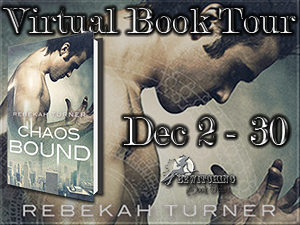
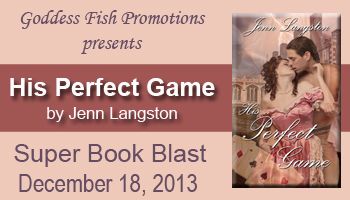
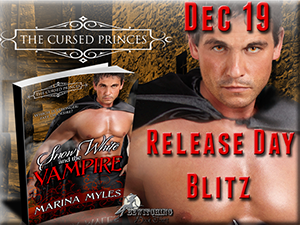
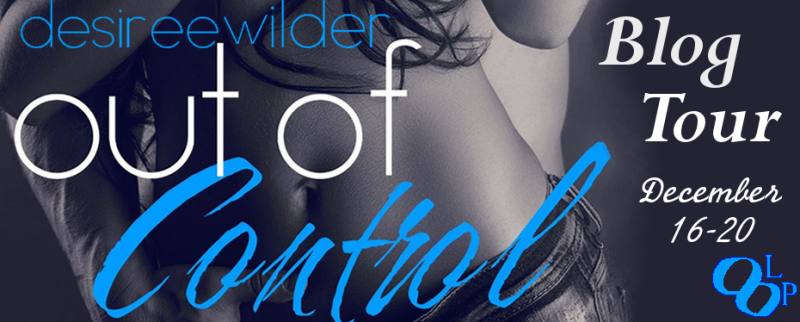
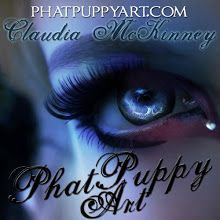
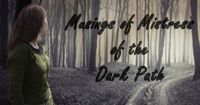


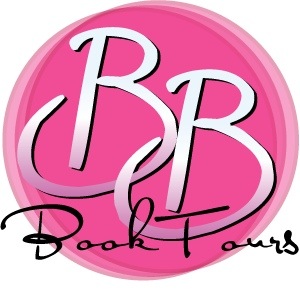

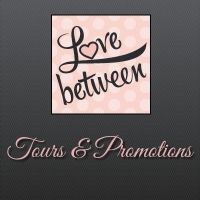
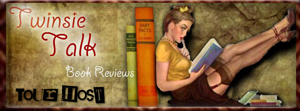
It really depends. Most of the time I just want to tell a story through my fiction. A lot of my short stories are “twist in the tale” type yarns with no real message.
Many writers do intend a message or to portray problems as they see them. 1984 for example is a warning about Communism, Brave New World is a warning about letting business and consumerism overwhelm society.
John Wyndham was the master of the message in fiction. I can’t think of a single book of his that *didn’t* have a warning or some social commentary in his work.
I’m sure there are plenty of stories that don’t really need a message, as they are meant more for entertainment than anything. That is certainly okay. Yet you also bring up excellent examples of authors who have tried to give warnings/messages to readers. It is interesting to consider the different goals people have when writing. Thanks for stopping by. I appreciated your input!
Not that I’m trying to plug my blog here (honest!), but I have several posts on social commentary in science fiction and horror.
Themes fascinate me, but a good writer is careful to ensure that a theme or a warning does not become a sermon where he/she bludgeons people with their personal gripes.
Susan,
You alluded to the main theme of our book in your review. My co-author had a goal of enlightening people. As mentioned in the Dedication, Glenn Beck and Richard Marcinko are his biggest influences. If a reader knows anything about Glenn Beck then you can guess one or more of the messages that is weaved throughout the book. I certainly don’t wish to give too much of our book away though. I’d like to think that we balance the book well between enlightenment and entertainment.
On a side note: Everyday life is full of good things and bad things. Moments that make you cry and moments that make you laugh. To me a good book can make you do both cry and laugh…sometimes they make you laugh so hard you cry.
Lynn, I was thinking of you when I wrote this as your book definitely has a message, though it is mostly implied. It was a good one.
You are right that a good book can make you laugh and cry 🙂
Aw thanks, Susan.
Angela can tell you that Dee Henderson books will definitely make you cry in places…there is also so parts that can make you laugh as well.
Yep. 😀 I love those books. Definitely ones you can read multiple times.
I know…if I had time to read over again. I’ve got a TBR list that is growing all the time. 🙂
Hi, not everyone knows if he or she is real. Some people think they are living in alternate reality worlds. That’s true of Johnny Oops the principal character in my novel by the same name. Do you know if you are real?
John 15:13 was the theme I had in mind for Phoenix Feather: “Greater love has no one than this, that someone lays down his life for his friends.” It’s not Christian fiction, but there are subtle Christian themes.
My primary purpose is writing for entertainment, but I do like to include themes of healthy relationships. I’ve had and seen my fair share of dysfunctional; I don’t want to read or write about it.
Angela,
I saw that verse just yesterday when I was doing a Google search for Bible verses regarding Helping Others.
Since anyone who wishes to read the preview will know this. I will say that one of our main characters is a Methodist Minister. So there is alot of praying going on in our book…but by no means is our book a Christian fiction.
You had a few times that your characters prayed in your book Lynn, but it happened at natural places where you might expect it. I didn’t get the feeling the story was being “preachy” so it wasn’t a big deal. Having a bit of religion is okay to me so long as it doesn’t feel forced (which yours wasn’t). Of course, this is my opinion and shouldn’t represent anyone else.
No, not preachy…I don’t particularly like preachy myself. Just a natural off-shoot of the character and the situation at hand.
That is exactly what it came across as. Just a part of the characters background.
Angela, I liked that your book had that theme. The sacrifices made for those one loves can be very powerful in books. Yours definitely touched me there.
Out of curiosity, do you think Cat and Bones (Night Huntress Series for the rest of you) were a bit on the dysfunctional side for parts of their relationship? They clearly loved each other, once Cat got past her prejudices, but they had some rough times. I thought it made them stronger, even if I wanted to throttle Bones occassionally. Yet I wouldn’t call their relationship very healthy until later books.
Mostly, you have me worried now because the heroine in my WIP is going to have some rocky times before she develops a solid relationship, though it will be with only one guy. I’m just not going to reveal who that is until book two, as there will be several possibilities thrown in, yet the frst book doesn’t really have any romance to it so readers are kept guessing.
Hmm…As for me I’d say the main character should have challenges. I don’t know too mainly family or relationships that don’t have some form of dysfunction in it. It is how we meet those challenges that makes the difference. I’d say that would be true in a book too. I think I read somewhere that a book is not really that good if you don’t show some kind of growth in the main characters.
Lynn, the thing I want for my story is that the character herself has to grow a bit and so will the man she falls for before they are together. They will not like each other for awhile, but that will change over time. I like those kind of love stories. By all rights, my hubby and I should have hated each other, but we got past our differences and made our relationship work (faster than my characters will lol). So, anyway, overcoming the odds and differences will be part of the story I’m writing.
I think everything you said is right and that is what helps us love certain characters more than others.
I think the theme of the woman and the man not initially liking one another is true in a lot of story lines. It works best when they both have to work towards a common goal…then they get to know one another a little better…and then love starts to blossom. I’m so glad that you and your hubby make things work. It is something that we all should try and do. Get past our differences. Of course, the main ingredient has to be LOVE because without that…you might as well forget it. This is just my personal opinion though.
Exacly Lynn. There are a lot of nuances to the relationship that will come out over time and they will eventually have to work together. I’m not going to say more, though, as I’m already giving away a lot, lol.
Susan, I wouldn’t worry about your characters. Needing to grow in order to love is a valid subplot and something I think everyone can relate to. It’s the overcoming that’s important to me, becoming better than you were. I want to be inspired by a character’s growth because it gives me hope for myself.
I also agree with you on the monogamy. There are some things no woman should put up with, and therefore none of my characters will. I guess part of it, for me, is setting an example to whoever reads my story. “You’re beautiful and you deserve the best.” As Lynn said, everyone is dysfunctional in some way. But there are varying degrees, and there are some things I will not tolerate in a relationship.
Heh, well Lynn beat me to it, but it’s the personal growth that I think is important. Yeah, no one’s perfect, but as long as the character realizes this and wants to improve, I can root for them. It’s the dysfunctional characters who don’t even want to change that bug me.
And yeah, to be honest I don’t care for Bones and Cat’s relationship. I enjoy the supernatural aspects of the story. In the last one I read, I seriously wanted Cat to say the hell with him and move on. Maybe shoot him. It’s not that I can’t read or enjoy books with dysfunctional characters and relationships. I just can’t say which ones will evoke that visceral response that has me hating the characters.
I know writers are supposed to write for their audience, and I do, but I also write for me. That’s not to say I’m not going to try branching out at times.
Well said Angela. Sorry wasn’t trying to step on your toes but had a thought and went with it. I do that sometimes.
You will probably like book five of the series then as they get along really well in that. Some people actually complained because Cat and Bones got along too well. Some readers apparently like the dysfunction! Persoanally, I was happy to see them work as a team for once. Book four was definitely one that made me angry at Bones too. One thing I will not do is have my my heroine dealing with what even appears to be cheating. I prefer monogamy. It also drives me nuts if the heroine switches between men (Richelle Mead does this). I want to scream for them to pick one and stick with him! It is okay that she has choices. Many people deal with that in real life, but once you chose, all others should be off limits. That is the problem with urban fantasy is some authors think their heroines have to bounce between beds. Technically Cat and Bones don’t cheat, but it is a fine line they walk that gets a bit too uncomfortable to me at times.
Great reflections on the subject of themes, everyone. I tend to prefer my stories to be clear black and white for the most part, which I guess means my theme is often good versus evil, or good decisions versus bad ones, or good action versus bad inactions. Occasionally I shoot for something beyond that, as with “The Santa Shop” I wanted to explore a simple question: What if all conspiracies aren’t bad? Or with “Under-Heaven”: How tight are family ties after death?
I often suspect that some of the most famous themes in the great works are often exagerations and even blatent guesses by critics. That doesn’t make their assessments useless, it just means that the value of a story can sometimes (maybe often) be greater than the value knowingly imparted by the author. I suspect Voltare, Shakespeare, Dickens and many others would be secretly smirking as they read the volumes of literary interpretations done about their works.
I look forward to looking down from Under-Heaven in a hundred years and listening to false assessments of my own work. Of course, it will only be one guy who found an ancient copy behind an old bureau someplace.
“Tim Greaton, huh. ‘Never heard of him, but I think this Santa Shop thing was meant as a cautionary tale about insect cruelty or ear piercings…and maybe even both.”
🙂
Rofl, Tim you crack me up. Can’t imagine that interpretation of your book, but one never knows! I thought about The Santa Shop as well when writing this blog and felt it gave me the message of not giving up hope. That there are people who care out there if you are just willing to look and that life is worth living no matter how hard it can seem at times. Not sure if that is what you hoped readers might see, but that is what I got 🙂
Naw…I was shooting for insects and piercings. ‘Can’t believe you didn’t catch it 🙂
Maybe I will need to re-read it sometime. Surely I missed something lol!
Tim, you crack me up sometimes. I think though you are probably correct. Man…I’d hate to think of what they might say about our (my co-author and I) body of works.
Lol. In seriousness, though, Tim, I want to ask you–do you ever get flak for having black and white stories? I’ve gotten a little for having male love interests who were boy scouts. The bad boy is extremely popular today, and it’s hard enough finding a real life nice guy to begin with that I’ve kind of been told it’s too nice. But, that goes back to my desire to highlight healthy relationships. I’m not willing to sacrifice that to please the masses, but I’m wondering if you’ve had to deal with the same type of criticism.
Hi, Angela. I never have received any negative comments about my adherence and even insistance on right and wrong and happy endings. Criticisms for my “other” list, however, is exceedingly long 🙂 ). I think the reason I haven’t been singled out for the theme issue is because I am first and foremost a character writer, which is to say I focus on the character first with everything else including theme and plot my secondary goals. Usually, if a reader relates to and enjoys my character, the journey that I take them on passes muster. If, however, a reader doesn’t relate to or like the protagonist, all bets are off. ‘Hope the comments make sense 🙂
Yeah, that makes sense. Most people who have read my stuff haven’t complained about it, but I have anticipated some reception like that. I guess I’ll just plow ahead. 🙂
Lynn, I just hope your books aren’t found behind the same cobweb covered bureau as mine. Of course, they might interpret our combined writings as holy scripts and we could all be the basis for a new cult 🙂
Considering I have read both your books, I’m not sure what they would think. One is very military oriented and the other deals with suicide. That would make for some interesting interpretations…..
It seems to me our books are basically the same. My character eats PopTarts, and Lynn’s eats military rations. Sorry, I just don’t see the difference.
You, uh, have a point there Tim! Don’t know how I didn’t see it.
Maybe the might think it was a suicide bomber in there somewhere. I’m sorry that slipped out of my head. Of course…I do like Tim’s Pop Tarts and military rations analogy. Actually I wouldn’t have minded Pop tarts in my military rations. Especially chocolate ones. (smile).
Tim,
If they find our book, that far into the future. They might think it was actual history. Of course…that could be a basis for a cult in the future. Who knows. Still I laughed when I read what you said.
I have to confess … I never consciously write with a theme in mind. At heart, I’m a storyteller with only one goal – to entertain myself and my readers with what I write. My Portals books are very escapist, and if I can make you smile … if you close the book feeling like you’ve had a good time … I’ve done what I set out to do.
P.L.,
There is absolutely nothing wrong with that. I’d say that was a gift to be able to tell stories and entertain.
Thanks, Lynn. I think it goes back to my 30 years writing for newspapers (which I’m still doing, just not full-time these days). Some days, I’d work five, six hours straight, then go home with just enough time to grab some kind of quick meal before heading out to cover a meeting.
Most of what I covered was crime, court and government – and when I had down-time, the last thing in the world I wanted to do was read something that I had to think deeply about. I read, then and now, for escape.
I figure there are probably a lot of other people out there like me, who have to deal with enough grim reality at work, so they don’t want to deal with it in their leisure time.
That’s my audience … those who want to leave the real world behind for an hour or two.
You’re welcome.
I understand what you mean. I read all day for my previous career. So I would go in spurts when I wouldn’t read for pleasure at all.
Now I read and write but still read something different for pleasure. I don’t have television any more to distract me.